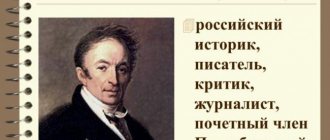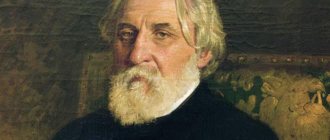Who is the saying about: “Happy people don’t watch the clock”? If a person’s life is filled with love, happiness and interesting things, and there are people dear to him nearby, and time seems to speed up, then it’s all about him.
For a lucky person, time seems to turn into some kind of abstract quantity - a day gives way to a new day, a year flies by. And the world reciprocates his feelings - good people rejoice at his happiness, and the Earth begins to rotate faster and faster. For indifferent and lazy people, time drags on endlessly, but for happy and passionate people, 24 hours is usually not enough in a day.
“Happy people don’t watch the clock”: literal and figurative meaning of phraseology
- “Happy hours do not watch” - it is quite difficult to discuss the direct meaning of this, in general, outdated phraseological unit. After all, now no one will say, for example: “I don’t have a watch for this,” but rather they will say, “I don’t have time for this.”
- And if someone suddenly decided to understand literally the meaning of this expression, then it could only cause bewilderment. After all, how can one understand this - if a person is happy, then he goes blind? And why does he stop seeing the clock and not anything else?
- It is impossible not to agree that a lover is like a blind man. And at this time, even if the whole world falls into tartarar, by and large it doesn’t matter to him, as long as his loved one remains close.
- The figurative meaning of the phraseological unit “Happy people do not watch the clock”: truly happy people do not notice the passage of time.
LiveInternetLiveInternet
Sunday, June 15, 2014 19:37 + to the quote book What the ancient clock sings about Clock and sculptural composition - balcony of the Nobilis Hotel - Lviv Clément Philibert Leo Delibes - “Waltz of the Hours” from the ballet “Coppelia” Happy people don’t notice the clock They live outside time, space and boundaries Have you ever distinguished Their joyful and enlightened faces in a crowd?
Ballet "Coppelia" Composer - Clément Philibert Leo Delibes Staged by Ninette de Valois, based on the choreography of Lev Ivanov and Enrico Cecchetti Live broadcast from the Royal Opera House Covent Garden - London (2000) Leading roles performed by: Swanilda - Leanne Benjamin Franz - Carlos Acosta Doctor Coppelius - Luke Haydon Coppelia - Liane Palmer Clément Philibert Leo Delibes - French composer, creator of ballets, operas, operettas, born February 21, 1836 in Saint-Germain-du-Val. Delibes studied music with his mother and uncle, an organist at the Church of Saint-Eustache and a singing teacher at the Paris Conservatoire. He was a chorister at the Church of the Madeleine in Paris. From 1853 to 1871 he served as organist at the Church of Saint-Pierre de Chaillot. At the same time, he collaborated with the Parisian Lyric Theater as an accompanist and tutor. In 1871, Delibes resigned from his position as organist, married, and devoted himself entirely to composition. The first thirteen small operas did not bring Delibes great fame. His real fame began in 1865, after writing the cantata “Alger” and, especially, after writing the ballet “The Source”, staged in 1866 at the Grand Paris Opera. Delibes made a great contribution to music for ballets - he gave grace and symphony to this music. Among Delibes' ballets, Coppelia, or the Girl with Enamel Eyes, occupies a special place. The plot of this ballet is based on the short story “The Sandman” by Ernst Theodor Amadeus Hoffmann, which tells the story of the old master - Doctor Coppelius and his doll Coppelia of extraordinary beauty, with whom young guys fall in love, mistaking her for a living one. And the girls of these guys, as usual, are jealous of them until they find out the secret of this magical beauty. In 1884, Delibes was elected a member of the French Academy of Fine Arts. Leo Delibes wrote many musical works of various forms, among which the most famous and noteworthy, in addition to the ballet Coppelia, are the ballet Sylvia, or the Nymph of Diana and the operas Thus Said the King and Lakme. The composer died in Paris on January 16, 1891. Columbine - a kinetic sculpture from the Theater Museum in St. Petersburg Well, why not Coppelia?! This wonderful Columbine, made especially for the Theater Museum in St. Petersburg, is the fruit of the creative efforts of a whole team of masters: Alexander Getsoi (Alexander Getsoi Workshops - “MAG”); Sergei Vasiliev and Kirill Bashkirov (“Prop Workshops”); Viktor Grigoriev and Vera Marinina (“Art Mechanics”); Alexey Limberg. The photograph of Columbine the circus performer was taken in the Moscow Manege at the exhibition “The Art of the Puppet.” The photograph was taken at the Theater Museum, where this Columbine “lives.” The cinematic sculpture, the photograph of which is located above, is also called Columbine. In the photo she is shown with one of her authors, Viktor Grigoriev. He made this Columbine together with Vera Marinina. This Columbine is a circus performer - she walks on a wire. She has a partner - Harlequin, who juggles while sitting on a circus wheel. [/td]
Paired kinematic sculptures Columbine and Harlequin Authors - Vera Marinina and Viktor Grigoriev (“Art Mechanics”) Both videos were filmed in the Moscow Manege Fairy dolls - author Viktor Grigoriev Nowadays, such toys have the ability to use electricity for illumination, which makes them even more spectacular. Below is a video of one of these rather complex toys. And this is a wonderful jukebox - how much creativity and skill the unknown master put into it! Kinetism (from the Greek kinetikos - movement that sets in motion) is a direction in modern art that plays on the effects of real movement of the entire work or its individual components. Elements of kineticism have existed since ancient times in the form of various kinds of tricks that animated sculptures, in applied arts, and theatrical scenography. The kinetic figures or sculptures presented above, as for me, would be more correctly called mechanical toys, similar to those that humanity has been interested in for a long time. Actually, one of the first mechanical toys with practical purposes was a mechanical watch. The operating principle of a clock with an engine in the form of a spring, with weights, counterweights, and gear gears was used to create toys that performed simple movements, for musical machines: all these playing organs, boxes, snuff boxes. In the city of Utrecht (Netherlands) there is even a Museum of Clocks and Boxes, which contains mechanical musical instruments created from the 17th to the 20th centuries: music boxes, clocks that play melodies, street organs, mechanical pianos and organs. Among the museum’s exhibits there is also a Soviet-made musical souvenir - a model of the first artificial Earth satellite, performing the melody of Isaac Osipovich Dunaevsky’s song “Wide is my native country.” Most of the exhibits are in working condition. This museum was created in 1956 and is located in an old church building. MUSEUM EXHIBITS A selection of mini-video clips about this museum and its wonderful exhibits. The museum's exhibition includes many jukeboxes - from very small to very large and all kinds of musical toys. All this can be seen and heard if you watch the video above. Watch it and I promise you, you won't regret it. There is a wonderful Soviet cartoon based on the fairy tale by Vladimir Fedorovich Odoevsky “Town in a Snuff Box,” which tells about a mechanical toy - a musical snuff box. I think everyone who hasn't seen it yet will enjoy it, and those who are familiar with it can watch it again, hopefully with great pleasure. A Box with a Secret (1976) Scriptwriter - Evgeny Agranovich Text - Alexander Ivanov Composer - Vladimir Martynov Musical accompaniment - Oregon ensemble Now all children watch films and cartoons on TV and many of them take advantage of all the advantages that computers provide. True, now you won’t find a children’s program during the day on television programs. But during my childhood, television had not yet arrived in all cities, so radio programs made specifically for children were very popular. One of these was the radio show “Town in a Snuff Box.” I still remember the magic phrase from this radio tale: “I am a bell boy from the city of Tinker Bell.” Radio show “Town in a Snuffbox”
Lyadov Anatoly Konstantinovich - Waltz-joke “Musical Snuffbox” The clock accompanies us always and everywhere: at home, on the street, at work. They are our irreplaceable helpers. But it happens that the clock becomes our enemy - when we are late somewhere or do not have time to do something necessary by a certain time. But is the clock to blame for this? And the clock inexorably counts down the happiest moments of our lives and there are fewer and fewer of them left. But the watch shouldn’t be blamed for this either, because it just does what it’s supposed to do.
Let the happy not watch the clock Natalya Valevskaya sings The happy clock is not a hindrance - They can only hear the beating of hearts The echo echoes faintly: Tick-tock, tick-tock, tick-tock, tick-tock... Man invented a clock a long time ago - a water clock (clepsydra ) were found in Babylon and Egypt as early as the 16th century BC. Some written sources claim that water clocks were found in China and India even earlier - in the 4th millennium BC, but, unfortunately, no evidence has yet been found for this. In addition to water dials, there were sundials, fire dials, and sand dials. The latter are still in use today. The prototype of modern mechanical watches appeared in the 2nd century BC in Greece. The first mechanical watch with an anchor mechanism was made in China in 725 AD. From China, the secret of the device came to the Arabs, and from there it spread throughout the world. Already in our time, electronic and particularly accurate atomic clocks have appeared. But still, mechanical watches, especially well-known brands, have not lost their popularity. On the contrary, for example, among business people, expensive mechanical watches are a matter of prestige and confirmation of the status of their owner. At all times, watches, in addition to their utilitarian purpose, have been objects of art. Famous jewelers and sculptors have been and continue to be engaged in the manufacture of unique cases for watch movements. Cupid and Psyche - clocks from the Hermitage collection - St. Petersburg Mikael Tariverdiev - "Antique clock" from the cycle "Memories of Venice" Ancient clock Author's song of the group KiSh Performed by the group "King and the Clown" (KiSh) For all the happy ones it doesn't matter, They're coming the clock or stands - In their unusual dimension, the years float and the days fly. Raymond Pauls to the verses of Ilya Reznik - “Antique Clock” Sung by - Alla Pugacheva But, if happiness has run away, The clock does not wait for him back - Wind them up, they have little grief: Know that they are ticking rhythmically... katani08
| Categories: | interesting story |
Cited 1 time Liked by 1 user
Like share
0
Like
- 1
I liked the post - Quoted
- 0
Saved
- Add to quote book
- 0
Save to links
Liked1
0
“Happy hours don’t watch”: a one-word explanation
- The phraseology “Happy people don’t watch the clock” is used in cases when they talk about happy moments in people’s lives.
- At this moment, they seem to become “blind” and “deaf” to the entire world around them and do not notice the passage of time.
- We can say that time flies unnoticed, happy lovers become absent-minded and not attentive. And all the most important things are concentrated only in themselves, and at this moment they don’t need anyone else.
Happy hours don't watch, meaning
Characteristics of the main characters of Griboyedov’s comedy “Woe from Wit”
The main conflict of the comedy “Woe from Wit” is the conflict of generations, and more broadly: between an ossified society and progressive views. Famusov is the keeper of traditions, Chatsky is a supporter of progress. The storyline around which the main conflict revolves is a love triangle. Famusov's daughter Sophia is loved by Chatsky, but she likes her father's secretary, Molchalin. Let us dwell on the characteristics of these characters.
- Pavel Afanasyevich Famusov serves as a manager in a government agency. He is distinguished by reverence for rank, hostility to everything new, and denial of the benefits of education. It is important to him what people think about him in society. He fears enlightened people.
- Sofia is Famusov’s 17-year-old daughter. She lost her mother early; her father raised her. She puts feelings at the forefront, and for the sake of them she is able to resist the opinion of society.
- Alexey Molchalin serves as Famusov’s secretary. Thanks to Famusov, he received the rank of assessor, although he does not belong to the noble class. Lives in Famusov's house and enjoys the attention of his daughter. Timid and silent.
- Alexander Chatsky is a young man, educated, with progressive views. He returns from a three-year journey and finds Sofia, with whom he grew up and with whom he was in love, unfaithful, having an affair with another man (Molchalin).
Of the minor characters, it is worth mentioning Colonel Skalozub, a wealthy middle-aged man to whom Famusov wants to give his daughter, as well as the Famusovs’ maid Lizanka, who is forced to endure the harassment of the owner of the house and hide Sophia’s meetings with Molchalin.
“Happy hours don’t watch”: who said what work this catchphrase was taken from?
Surely everyone was still familiar with the work “Woe from Wit” at school. This comedy was written by the great classic of Russian literature, Alexander Sergeevich Griboedov, and it was he who wrote this, which later became a catchphrase, “Happy people don’t watch the clock.”
Let us recall the excerpt from the work from which this phraseological unit is taken:
- “[Lisa] Look at your watch, look out the window:
- People have been pouring down the streets for a long time,
- And in the house there is knocking, walking, sweeping and cleaning.
- [Sofia] Happy people don’t watch the clock.”
Sofya Famusova answered her maid in response to her call to be careful, since her strict father could find her together with her lover - after all, it was already morning.
Nowadays, rarely anyone remembers from whose light hand this catchphrase fluttered out, but almost everyone pronounces it from time to time.
Happy people don't watch the clock, Woe from mind
Is time relative?
The fact that the passage of time in different situations and in different emotional states is felt differently is no secret to anyone. And this can probably be called the emotional theory of relativity.
While waiting, time drags on for a very long time. We look at the clock every minute, but time seems to freeze!
Vladimir Mayakovsky in his poem “A Cloud in Pants” writes how he is waiting for Maria, who promised to come at four o’clock, but she is still not there. Every hour is like an ax blow.
The twelfth hour fell like the head of an executed man from the block!
Or Fazil Iskander writes that in the Abkhaz language there is a stable expression: “The time in which we stand.” It denotes immutability, constancy, absence of events. This time is usually gloomy, devoid of joy.
In the life of Nina Chavchavadze, Griboyedov’s beloved woman, her life was also divided into two unequal parts. In 1828, Alexander Sergeevich came to Tbilisi and fell in love with the Georgian princess Nina Chavchavadze. In the autumn of the same year they got married and left for Persia, where Griboyedov was appointed ambassador. He left his wife in Tabriz. And in January 1829, a brutal crowd of fanatics attacked the Russian embassy and tore it to pieces.
Nina was happy for only a few months and mourned for more than 30 years.
Why did my love outlive you?
Written on her grave.
After his death, Nina mourned for more than 30 years. And the months spent with Griboyedov were her main life.
Music also affects our perception of time. Different melodies either speed up or slow down our perception of reality. Physiologists have proven this by measuring the heart rate and breathing rate while listening to different melodies. For example, when performing the work “Time Forward” by Georgy Sviridov, the subjects’ pulse increased by 17%. And Beethoven's "Moonlight Sonata" slowed the heart rate by 8%
What synonym can be chosen for the phraseological unit “Happy people don’t watch the clock”?
- 24 years earlier than Griboyedov’s “Woe from Wit” was published, the German poet Johann Friedrich Schiller wrote in his drama Piccolomini: “Die Uhr schlagt keinem Gliicklihen” , which translated into Russian means . ”
- Who knows - it is quite possible that Griboedov borrowed this expression from him, but Russian people are accustomed to saying exactly this way: “Happy people don’t watch the clock,” and “Happy people don’t strike the clock” is just a synonym for this phraseological unit.
History of appearance
This expression was introduced into Russian use by A. S. Griboedov. In the comedy “Woe from Wit,” Sophia says these words to the maid Liza about her date with Molchalin. (act. 1, appearance 4).
“Happy hours don’t watch!”
But with some variants such expressions have been found in the literature before.
Matthew Prior's satirical poem Alma, written in 1715, states:
There are no happy hours!
And in Friedrich Schiller’s drama “Piccolomino” (the second part of the Wallenstein trilogy), Marco Piccolomino says:
The happy hour doesn't strike!
“Happy hours don’t watch”: how to make a sentence with phraseological units?
- This is approximately how a young man can answer his parents, dissatisfied with his late return home: “Time flew by so unnoticed for Anyuta and me that I was late for the last train, because you yourself understand perfectly well that happy people don’t watch the clock!”
- Sometimes this idiom is also used in a humorous manner. Imagine the situation: office, emergency work in a friendly, well-coordinated team, end of the working day. “Wow, the workday ended so quickly today,” said Masha, turning off the laptop, “but happy people don’t watch the clock!” On this occasion, journalists of the Soviet era liked to use a similar cliché in their essays: “Tired, but happy, they returned home from work.”
This phraseological unit is used when, out of love and happiness, you do not control time
. Have you noticed that when a couple easily, cheerfully and naturally walked along their life path, then towards the end of their years they usually say: “Life flew by, as if it was just one only a moment - happy people don’t watch the clock”? Of course, happiness can be changeable and impermanent. But it’s worth trying to grab the firebird by the tail in order to enjoy every moment of a happy life. So that people can say about you: “Happy hours don’t watch!”
Useful articles on the site about the origin of phraseological units and sayings:
- “I got up on the wrong foot
- “The further into the forest, the more firewood”
- "If the mountain does not come to Mohammed, Mohammed goes to the mountain"
- “A mosquito won’t erode your nose”
- “A kind word also pleases the cat”








